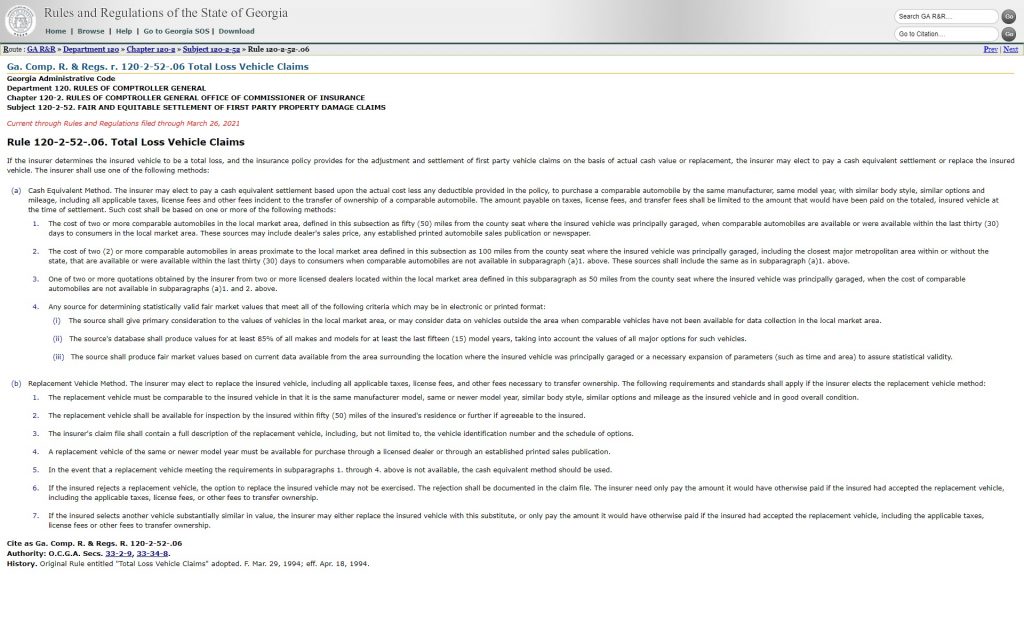Ga. Comp. R. & Regs. r. 120-2-52-.06 Total Loss Vehicle Claims
Georgia Administrative Code
Department 120. RULES OF COMPTROLLER GENERAL
Chapter 120-2. RULES OF COMPTROLLER GENERAL OFFICE OF COMMISSIONER OF INSURANCE
Subject 120-2-52. FAIR AND EQUITABLE SETTLEMENT OF FIRST PARTY PROPERTY DAMAGE CLAIMS
Department 120. RULES OF COMPTROLLER GENERAL
Chapter 120-2. RULES OF COMPTROLLER GENERAL OFFICE OF COMMISSIONER OF INSURANCE
Subject 120-2-52. FAIR AND EQUITABLE SETTLEMENT OF FIRST PARTY PROPERTY DAMAGE CLAIMS
Current through Rules and Regulations filed through March 26, 2021
Georgia Rule 120-2-52-06 Total Loss Vehicle Claims (PDF)
Rule 120-2-52-.06. Total Loss Vehicle Claims
If the insurer determines the insured vehicle to be a total loss, and the insurance policy provides for the adjustment and settlement of first party vehicle claims on the basis of actual cash value or replacement, the insurer may elect to pay a cash equivalent settlement or replace the insured vehicle. The insurer shall use one of the following methods:
| (b) | Replacement Vehicle Method. The insurer may elect to replace the insured vehicle, including all applicable taxes, license fees, and other fees necessary to transfer ownership. The following requirements and standards shall apply if the insurer elects the replacement vehicle method:
|
Cite as Ga. Comp. R. & Regs. R. 120-2-52-.06
Authority: O.C.G.A. Secs. 33-2-9, 33-34-8.
History. Original Rule entitled “Total Loss Vehicle Claims” adopted. F. Mar. 29, 1994; eff. Apr. 18, 1994.




